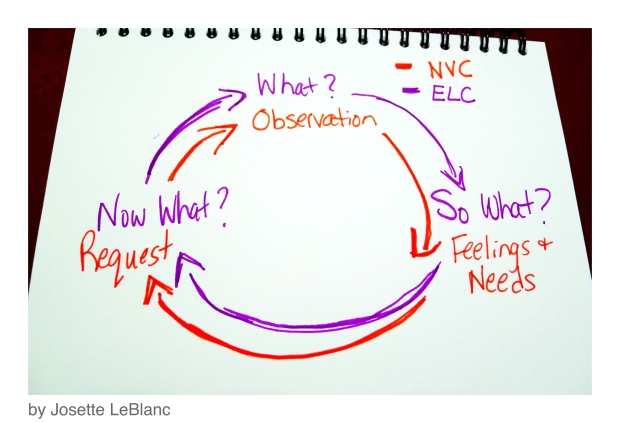Before you start reading, I’d love to hear your thoughts on anything you read below. You may want to comment on some of these questions: Does the concept of reflective inquiry I offer resonate with you? What was your reaction to the interaction that happened? How would you have handled the situation? Have you had a similar experience?
Thank you for reading on!
Previous post
Last week, in Losing It at School – Bridging Reflective Inquiry and Nonviolent Communication, I looked at the What? of the experiential learning cycle (ELC), and I made a connection between it and the Observation stage of the Nonviolent Communication (NVC) process. Today I am going to examine the So What? stage (ELC), and the link I make to Feelings and Needs (NVC).
So What? as part of the reflective cycle, asks us to hypothesize reasons why an event occurred. When I am at this stage, I like to take a closer look at the feelings I felt, and guess at the feelings others may have felt during that moment. Although this may seem like an observation to some — and as such, should be in the What? stage — feelings give us insight into what people need and value. I believe that the exploration of needs and values is a theoretical venture since needs are not always apparent. It may be easy to see that a person is upset, but the need behind that feeling can be quite elusive. When we search for a need, especially in others, we make guesses. A theory is a glorified guess.

Ok, enough with the conceptual mumbo jumbo; let’s get to the juicy stuff!




